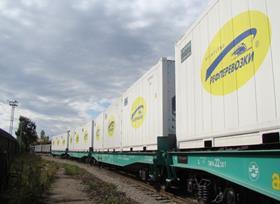
Russian importers are continuing to experience difficulties importing a wide range of European-grown fresh produce, with one company even reporting that consignments of cherries and apples have been rejected by customs officials.
Since the imposition of the ban over a week ago in reaction to Germany’s E.coli outbreak, trucks arriving at the Russian border are continuing to be turned away, leading to some concerns that retail prices in supermarkets may begin to rise.
According to Marat Mustafaev, from St Petersburg-based importer RGS, almost all fruits and vegetables arriving from Europe are currently being affected, while the Russian authorities are continuing to remove European-sourced fresh products from retail shelves.
Mustafaev said imports from the Netherlands, including peppers and tomatoes, were being particularly badly affected, adding that a Dutch official was reportedly visiting Moscow this week with a view to discussing the situation.
He said the halt on imports now appears to have extended beyond fresh vegetables into some fruit, notably cherries from Spain and apples from northern Europe.
“It’s been tough at customs – they are turning back trucks from Europe,” Mustafaev said.
However, one positive development for Russian importers has been the issuing today (9 June) of a new Russian protocol for the import of EU-grown berries into the country.
Andrey Semenov, from fellow importer JFC, said the ban does not yet appear to have had any significant impact on prices. “I was told that potatoes and carrots are up about 5 per cent – so there is actually no big deal,” he said.



